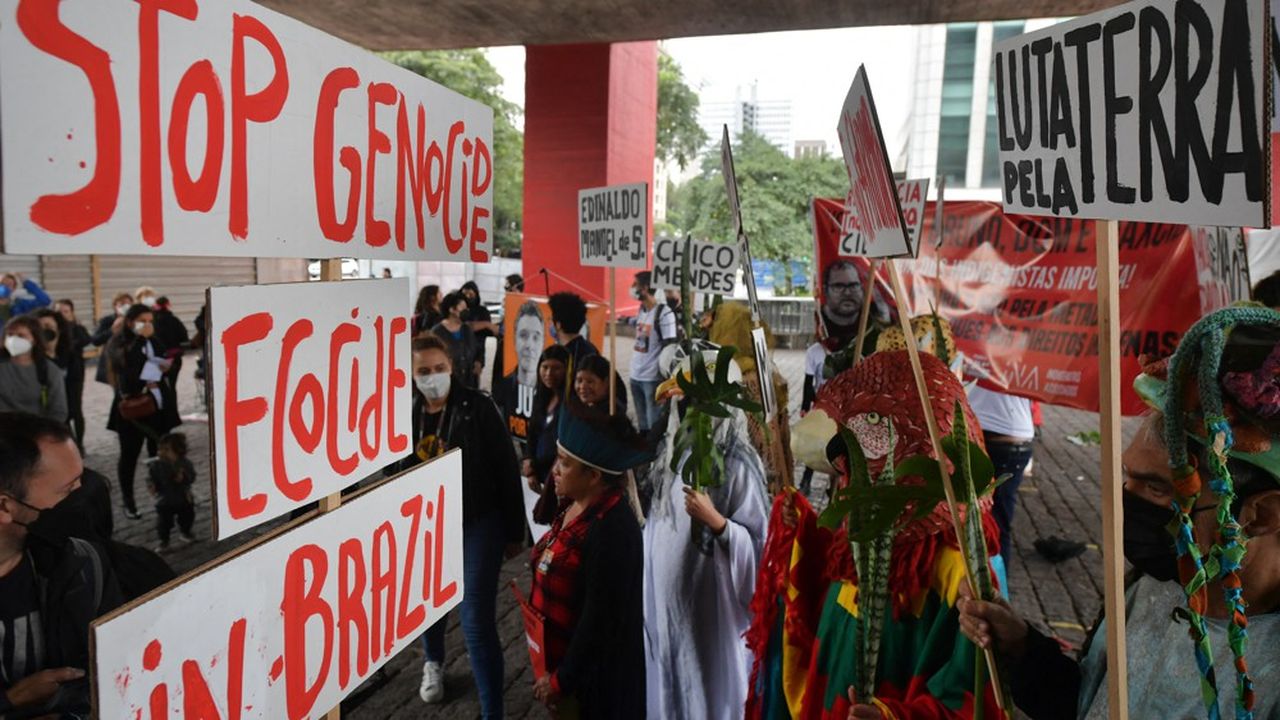
Environmental campaigning is a deadly danger in some parts of the world. This is confirmed by the latest report from the NGO Global Witness, published this Tuesday. In 2023, some 196 environmental defenders were indeed assassinated worldwide. “These new figures bring the total number of activist assassinations to 2,106 between 2012 and 2023,” the NGO points out, 2012 being the year from which Global Witness began producing its annual report.
About 85% of the 196 murders recorded last year were in South America. And Colombia is proving to be the most dangerous for activists: 79 murders were recorded there in 2023, compared to 60 in 2022 and 33 in 2021. Most of these crimes were recorded in regions located in the southwest of the country. “With 461 murders between 2012 and 2023, Colombia has the highest number of reported murders of environmental defenders in the world,” the report notes.
Criminal organizations are suspected of having committed at least half of these crimes. Hence the growing concern of NGOs, who point out that Colombia is hosting the United Nations Conference on Biodiversity (COP16) in the city of Cali from October 21 to November 1.
Philippines, the most dangerous country in Asia
Other deadly countries in Latin America include Brazil, with 25 murders last year, and Mexico and Honduras, which each recorded 18 murders. “Central America has become one of the most dangerous places in the world for environmental defenders. Ten defenders were also killed in Nicaragua last year, four in Guatemala and four in Panama,” the NGO added.
In Asia, the Philippines remains the most dangerous country, with 17 environmental activists killed. In Africa, Global Witness recorded four deaths, but warned that this figure was likely to be “significantly underestimated” given the difficulty of collecting information.
Forced disappearances and abductions
The NGO identified the fight against mining as the most affected by these assassinations, with 25 defenders killed after opposing such projects in 2023 worldwide. Other industries affected include fishing, logging, agribusiness, roads and infrastructure, and hydroelectricity. “Across the world, indigenous peoples and people of African descent continue to be disproportionately targeted, accounting for 49% of the total number of murders,” the NGO notes.
In addition to the killings, the report highlights cases of enforced disappearances and kidnappings, strategies used in the Philippines and Mexico in particular, and the wider use of criminalisation as a tactic to silence activists around the world. In this regard, Global Witness denounces increasingly harsh legislation in the UK and the US, which provides for harsher sentences for protesters and activists. It also points to “draconian levels of surveillance” in European Union countries.
As the climate crisis accelerates, this situation is becoming “unacceptable,” said Laura Furones, lead author of the report. “Governments cannot stand by and do nothing. They must take decisive action to protect environmental and human rights defenders and address the underlying drivers of violence against them. We cannot afford, and should not tolerate, the loss of more lives,” she warned.




